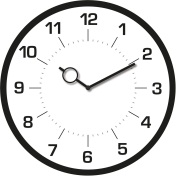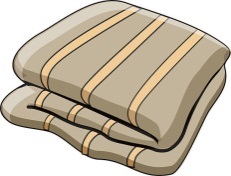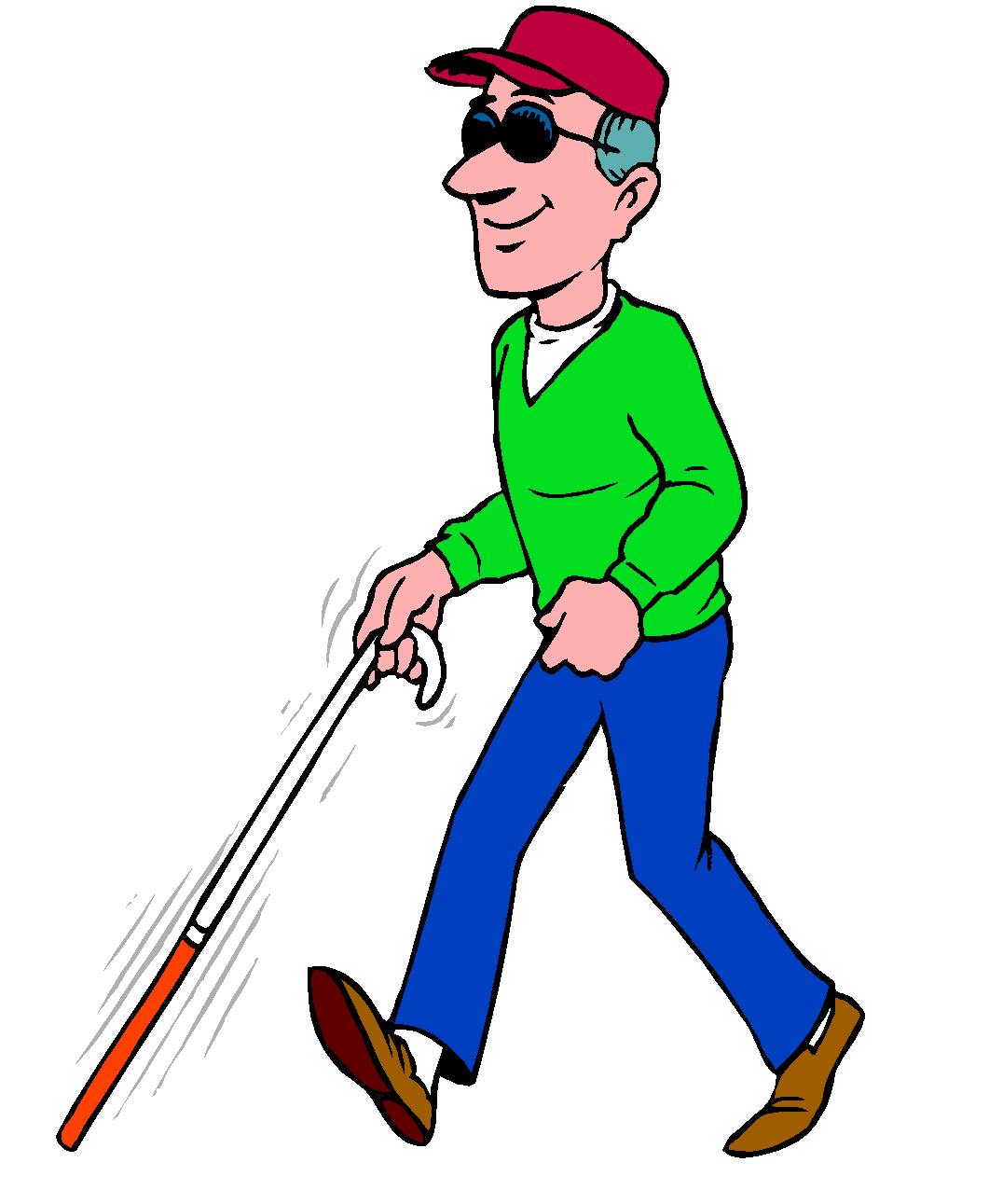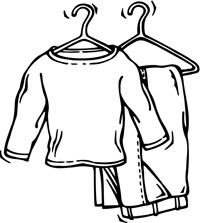Bài Tập Tiếng Anh Lớp 8 Theo Chương Trình Mới Bài 2: Life In The Countryside Có Đáp Án
Có thể bạn quan tâm
Bài Tập Tiếng Anh Lớp 8 Theo Chương Trình Mới Bài 2: Life In The Countryside Có Đáp Án là tài liệu học tập được Trang Tài Liệu biên soạn và sưu tầm từ những nguồn dữ liệu mới nhất hiện nay. Tài liệu này sẽ giúp các em luyện tập, củng cố kiến thức từ đó nâng cao điểm số cho môn học. Ngoài ra, cũng giúp các thầy cô giáo có nguồn tài nguyên phong phú để giảng dạy.
Dưới đây là bản đọc trực tuyến giúp thầy cô và các em học sinh có thể nghiên cứu Online hoặc bạn có thể tải miễn phí với phiên bản word để dễ dàng in ấn cũng như học tập Offline.

I. Say the words aloud, then circle the words that matches to the pictures.
|
|
|
|
1. clock / block |
2. blaze / clay |
3. blame / clap |
4. clasp / blanket |
|
|
|
|
5. blind / climb |
6. blender / cleaner |
7. clash / blast |
8. cloud / blouse |
|
|
|
|
9. clothes / blossom |
10. blown / clown |
11. blow / close |
12. bliss / click |
II. Underline the words that has consonant clusters blor cl.
1. Nick enjoys looking at the clear blue sky.
2. I climbed over the hill and found the bright bloom of the wild flowers.
3. They claimed that those special clinics were built for blind people.
4. Tight winds are blowing over the blackberry farm.
5. We will have a clear view after passing these building blocks.
6. There are some clues about the blast near the church yesterday.
7. Clay may stick on your clothes when you go flying kites on the field.
8. The blades of her juice blender was broken.
B. VOCABULARY AND GRAMMAR
I. Match the word or phrase with its definition.
1. buffalo drawn cart a. a circular wooden canvas and felt tent
2. harvest time b. land covered with grass where sheep, cows, horses, etc., feed
3. paddy field c. a vehicle with two or four wheels pulled by buffalo
4. cattle d. a structure where bees are kept for producing honey
5. pasture e. cows and bulls that are kept as farm animals
6. ger f. a high mountainous area of a country
7. beehive g. a field in which rice is grown
8. highlands h. the time of year when crops are cut and collected from the fields
9. dairy products i. a member of a community that moves with its animals from place to place
10. nomad j. food made from milk, such as butter and cheese
II. Complete the sentences with the words in part I.
1. If you want to gather honey, don’t kick over the _______________.
2. Horses are grazing in the _______________.
3. He helped his uncle load hay onto a _______________.
4. Mongolia’s nomads live in a traditional tent called _______________.
5. We saw lots of lush rice _______________ on the way to the village.
6. In Mongolia, he spent time with the nomads of the Gobi _______________.
7. A boy was driving the herd of _______________ to the pasture.
8. It is _______________, and all the farmers are very busy.
9. The Maasai are _______________ and cattle raisers.
10. The doctor told me to eat less red meat and _______________.
III. Complete the sentences with the adjectivesfrom the box.
1. It’s ____________ to see a kite flying high in the sky.
2. It was very ____________ there; you could just hear the wind moving in the trees.
3. I love the ____________ open spaces and the ____________ air in the countryside.
4. The villagers often find it ____________ to get into town due to the lack of public transport.
5. People in rural areas are more ____________ than their city counterparts.
6. I’m so ____________ of you getting such an exciting holiday.
7. Billy is clearly a ____________ person. He contributed lots of money to charity.
8. It was very ____________ of him to jump into the river to save a drowning child,.
9. Most of Mongolian people are ____________ at riding a horse.
10. Life in the countryside is more ____________ and healthier.
IV. Put the words in the box in the correct rows.
♦ride:
♦ herd:
♦collect:
♦pick:
♦ put up:
V. Underline the correct form of the word.
1. We’ve all been working very hard / hardly and now we’re tired
2. Our school Internet connection is really slow / slowly.
3. What’s the matter with him? He looks angry / angrily.
4. The children are playing quiet / quietly in the garden.
5. Rural areas are common / commonly known as the countryside or a village.
6. Nomadic children are very brave / bravely to learn to ride a horse at the age of five.
7. The sun is shining bright / brightly through the trees.
8. We all find living in the city very stressful / stressfully.
9. Don’t talk so fast / fastly– I can’t understand what you’re saying.
10. John was a kindly and generous / generously man.
VI. Complete the dialogue with the comparative form of the adjectives in brackets.
David: How do you like living in the big city?
Maria: There are many things that are (1) ______________ (good) than living in the country!
David: Can you give me some examples?
Maria: Well, it certainly is (2) ______________ (interesting) than the country: Thereis so much more to do and see!
David: Yes, but the city is (3) ______________ (dangerous) than the counting
Maria: That’s true. People in the countryside are (4) ______________ (friendly) thanthose in the city.
David: I’m sure that the country is (5) ______________ (relaxed), too!
Maria: Yes, the city is (6) ______________ (busy) than the country. However, the country is much (7) ______________ (slow) than the city.
David: I think that’s a good thing!
Maria: The country is so slow and boring! It’s much (8) ___________ (boring) than the city.
David: Life in the country is a lot (9) ______________ (healthy) than in the city, I think.
Maria: Sure, it’s (10) ____________ (clean) too. But, the city is so much (11) ____________ (exciting).
VII. Complete the sentences with the comparative form of adverbs in the box. Add ‘than’ where necessary.
1. The teacher spoke ___________ to help us to understand.
2. She answered all the questions __________ the other students and she got a very good mark.
3. The Spanish athlete ran ___________ the other runners, so he won the race.
4. Jim threw the ball ___________ Peter.
5. This street is crowded and narrow. Couldn’t you drive a bit ___________?
6. These days we are eating ___________ ever before.
7. I did ___________ on the test than Mark did. He got an A+ and I just got an A.
8. Machines can help farmers harvest ___________.
9. Does more money make you work ___________?
10. You’re talking so loudly. Could you speak a bit ___________, please?
VIII. Underline the correct words or phrases.
1. Cattle usually cross over the road. You should drive more careful / more carefully.
2. Life in some parts of the country is boring / more boring than that in other parts.
3. The old usually get up earlier / more early than the young.
4. An ox doesn’t plough weller / better than a buffalo.
5. These 7 thinking habits will help you become more confident / more confidently.
6. Don’t worry. The river is not as deep / deeper as it looks.
7. After a hard working day, you may sleep soundlier / more soundly than usual.
8. My father has been much healthier / more healthy since he stopped smoking.
9. The air in the mountainous zones is more fresh / fresher than that in the cities.
10. I can’t understand. Would you ask him to speak clearlier / more clearly?
IX. Complete the sentences with the correct form of the words in brackets.
1. Some people think that health is _____________ than money. (important)
2. The pollution in our city is much _____________ than it used to be. (bad)
3. My new teacher explained the lessons _____________ than my old teacher. (clear)
4. He doesn’t play volleyball as _____________ as his brother. (good)
5. Get rid of the sorrow! You will do it _____________ next time. (good)
6. Communication is a lot _____________ than it was 50 years ago. (easy)
7. People in rural areas wear _____________ than those in cities. (simple)
8. Robert arrived at the meeting _____________ than Francis. (late)
9. These trousers are too wide. Do you have any that are _____________? (narrow)
10. My mother always gets up _____________ than everybody else in the house. (early)
11. Rene speaks _____________ than the other ESL students in the class. (fluent)
12. Can’t you think of anything _____________ to say? (intelligent)
13. I think his new book is much _____________ than his last one. (boring)
14. Max finished the homework _____________ than anyone else in the class. (fast)
15. He doesn’t look as _____________ as he used to. (happy)
X. Fill in each blank with an appropriate preposition.
1. The farmers loaded the rice straw _________ buffalo drawn carts.
2. She is always envious _________ her cousin’s long blond hair.
3. He joined the boys _________ herding the buffaloes.
4. Would you like to visit the countryside _________ harvest time?
5. I think it’s better for children to grow _________ in the countryside.
6. The computer provides access _________ all the information.
7. The nomad move two or three times a year to look _________ new pastures.
8. A ger can be put _________, then taken _________ and transported.
9. My father used to live _________ a farm when he was younger.
10. Last summer holiday I went _________ a trip _________ the countryside.
C. SPEAKING
I. Match the questions with the answers.
1. What is your hometown, Michele? a. I usually played outside with my friends. Sometimes we went into the city to go shopping or see a movie.
2. How big is the town? b. Actually I find it exciting to live in the city, but it’s so crowded and the people aren’t friendly.
3. What is the town’s population? c. It’s pretty small, just about 1.86 sq mi.
4. Did you like your hometown? d. Ten years ago.
5. What did you usually do for fun? e. I lived in a small town called Beaverton.
6. How often did you go to the city? f. About three thousand people I think.
7. When did you move to the city? g. When I was little I liked it, but when I got older I found it pretty boring being in such a small town.
8. Do you prefer city or country life? h. Twice or three times a month.
II. Complete the conversation with the sentences from the box.
Thang: Thang speaking.
Tony: (1)
Thang: Hi Tony! It’s very exciting here. I’m having a wonderful time.
Tony: (2)
Thang: Lots of interesting things. Yesterday we went swimming in a river.
Tony: (3)
Thang: My cousins and their friends. We played and swam for 2 hours.
Tony: (4)
Thang: Yeah. Then we rode a buffalo cart to home. Fantastic!
Tony: (5)
Thang: Tomorrow afternoon we’re going to fly kites together. It’s even more exciting, I think.
Tony: Sure. (6)
Thang: Yes. I made friends with many local boys. They’re very friendly.
Tony: (7)
Thang: There are lots of open fields nearby. They’re great places to fly a kite.
Tony: (8)
Thang: Well, I wish you were here Tony.
D. READING
I. Fill in each blank with a word from the box.
Nowadays, some people choose to live and work in the countryside. New ways of working, such as online working, have made it (1)____________ for more people to live there. There are both advantages and disadvantages to living in the countryside.
On the one hand, life in the countryside is very (2)____________. There are less cars and that means that there is less noise, and that it is less (3)____________. Furthermore, there is more land available in the countryside, and people can often live in bigger houses or flats than in cities. Finally, it is easier to do a lot of (4)____________ activities such as walking or cycling if you live in the countryside. On the other hand, life in the countryside can be (5)____________. There are fewer restaurants, cinemas and shops to go to. Moreover, there is little public transport, which makes it difficult to get (6)____________ if you don’t have a car. Finally, you can feel (7)____________ if you live a long way from other people.
In (8)____________, there are both pros and cons to living in the countryside. However, in my opinion, the peacefulness of the countryside makes it a very attractive option.
II. Read the text carefully, then answer the questions.
Many people enjoy living in a big city because they think life is more exciting there. However, I come from a small village and in my view, there are lots of benefits. The main reason I prefer village life is because it’s very quiet, so I always feel calm when I’m here. Another reason is that the air is so fresh and clean. We have more green spaces and bigger gardens, too. In addition, I think the people here are friendlier. Personally, I’m interested in wildlife photography, so the countryside is perfect for me.
The only downside is transport. I have an early start for a long Journey to school in Faro and the school bus is always stopping to pick up more people. Also, it’s boring sometimes, but I enjoy chatting to my friends. Fortunately, I’m learning to ride a moped. On balance, I disagree that city life is better, as I think my village lifestyle is healthier and more relaxing. In spite of that, some of my friends couldn’t cope with life in the country, so it comes down to personal opinion.
1. Where does the writer come from?
2. Does he like living in a big city?
3. Why does he prefer village life?
4. How does he think about the people in his village?
5. According to the writer, what is the disadvantage of living in the village?
6. How does he go to school?
7. Does he think city life is better than village life?
8. What is he interested in?
E. WRITING
I. Put the words or phrases in the correct order.
1. I say/ people/ it / is/ Some/ for/ better/ children/ that/ in the city/ to/ than/ grow up/ in the countryside.
2. in/ Is/ the country/ living/ healthier/ living/ much/ in/ than/ the city?
3. because/ the air/ People/ living/ fresh/ the villages/ enjoy/ is/ clean/ in/ and.
4. We/ onto / load/ helped/ buffalo drawn carts/ the farmers/ the rice.
5. changed/ in/ has/ a lot/ ten/ over/ Life/ the/ countryside/ past/ the/ years.
6. In/ children/ the city/ play/ the countryside/ freely/ than/ more/ in.
7. learn/ a/ Nomadic/ horse/ when/ to/ children/ they/ small/ are/ ride.
8. jobs/ many/ formers/ Unlike/ depend/ other/ the/ heavily/ weather/ on.
II. Write a comparative sentence using the information and the word in brackets.
1. The average rainfall in Arica, Chile is 0.76mm per year. The average rainfall in the Libyan Sahara Desert is less than 15mm per year. (dry)
Arica, Chile
2. Henry arrived at the meeting at 7 o’clock. I arrived at 6:45. (soon)
I
3. It costs 100 million dong to build a concrete bridge, but only 50 million dong to build a steel bridge. (expensive)
Building a concrete bridge
4. It takes Linh 45 minutes to load hay onto the cart, but his father needs only 30 minutes. (slowly)
Linh
5. His house’s yard is about 100 square meters while your house’s yard is about 50 square meters. (large)
His house’s yard
6. It was very difficult to travel to the town 5 years ago. Now people can drive a car or take a bus to the town. (easily)
People can travel
7. I do yoga three times a week, but my sister does it almost every day. (frequently)
My sister
8. The Australian athlete jumped 8.78m. The American athlete jumped 8.59m. (far)
The Australian athlete
9. Red River is 1.149 km long. Mekong River is 4.350km long, (long)
Mekong River
10. A horse can run 80km/h while a dog can run 50km/h. (fast)
A horse
I. Choose the word whose underlined part is pronounced differently from the others.
1. a. ride b. excite c. ridden d. beehive
2. a. pasture b. vast c. brave d. farm
3. a. cattle b. circular c. country d. collect
4. a. generous b. ger c. grassland d. guess
5. a. worked b. watched c. relaxed d. crowded
II. Complete the passage with the comparative form of the adjectives in brackets.
Is life better now than it was in the past? Of course in many ways life is (1)_________ (easy) now. We live in the world which is (2)_________ (clean) and safer. It is generally (3)_________ (healthy) as well, and because of improvements in medical care, both men and women can expect to live (4)________ (long) lives. Our day-to-day existence is (5)________ (comfortable), but are we (6)_________ (happy)?
The rhythm of life is faster, and (7)_________ (stressful). People are always in a hurry. In the end it is hard to say things were (8)_________ (good) or (9)_________ (bad) before. As the saying goes ‘the grass is always (10)_________ (green) on theother side of the fence’.
III. Choose the best answer a, b, c or d to complete the sentence.
1. I went on a trip to the countryside and had my first experience _______ farm work.
a.on b. with c. for d. of
2. We usually spend our holiday in the village _______ our grandparents live.
a.what b. where c. which d. when
3. I think country life is so boring and _______ because you’re not close to shops and services.
a. unhealthy b.inconvenient c. comfortable d. peaceful
4. On the farm, uncle Duong showed us how to _______ cucumbers.
a. plough b.produce c. pick d. put up
5. Mongolian children start to learn _______ before they can walk.
a. horse riding b.riding horse c. ride horse d. horse ridden
6. On the side of the road, a herd boy was herding _______.
a. kites b.hay c. cattle d. blackberries
7. Mongolian children learn to ride when they are _______ as three years old.
a. as young b.younger c. younger than d. so young
8. Does your new stereo play music _______ than your old one did?
a. louder b.more loudly c. loudlier d. more louder
9. Countryside is not polluted _______ you can breathe there fresh air.
a. although b.however c. therefore d. as
10. ‘Children in my village often fly their kites in dry rice fields.’ ‘_______’
a. It’s right up my street! b. That’s awesome.
c. Exactly what I want. d. How interesting!
IV. Choose the underlined word or phrase, A, B, C or D that needs correcting.
1. Farzana didpoor on her algebra quiz because she couldn’t concentrate well.
A B C D
2. The test was more difficult than I expected. I could finish it at least 20 minutes early.
A B C D
3. Although the island has no clean water and electric, it attracts lots of tourists.
A B C D
4. The bee can easy sting anyone coming close to their beehives.
A B C D
5. I love farm work, such as digging holes, sowing seeds and I pick fruit.
A B C D
6. She is boring with the silent surrounding because she used to live in a big city.
A B C D
7. Life in the countryside is much peaceful and the life is also slower.
A B C D
8. Nomadic children learn riding a horse when they are very small.
A B C D
V. Write the correct form or tense of the verbs in brackets.
1. We ___________(play) football this afternoon. Do you want to play too?
2. Could you meet me at the airport tomorrow? My flight___________(arrive) at six.
3. Last summer, my friends and I ___________(spend) our holiday on a farm.
4. Nick ___________(not ride) a buffalo drawn cart before.
5. The cattle ___________(graze) on the green pastures right now.
6. Millions of Mongolians ___________(be) semi-nomadic herders for thousands of years.
7. My family ___________(live) in a small town for ten years before moving to Boston.
8. Country life ___________(not excite) me at all. It’s so boring.
9. Nick would like ___________(visit) the countryside at the harvest time.
10. I don’t mind ___________(drive) for 1.5 hours on the weekend to get out to the countryside.
VI. Write the correct form of the word in brackets.
1. People seem to have lost their ___________ in boating on small rivers. (enjoy)
2. More and more ___________are leaving the countryside to city. (farm)
3. A town has a ___________ population than a village does. (large)
4. Sylvia likes the ___________ atmosphere during her stay in the valley. (peace)
5. The firefighters were praised for their ___________ and devotion to duty. (brave)
6. Visually the house is very pleasing, but it’s ___________. (comfort)
7. It is true that the city can provide much ___________. (convenient)
8. Agricultural work is ___________ seen as a male occupation. (tradition)
9. Villages and towns are not as densely ___________ as cities. (populate)
10. The trip was an ___________ experience. We enjoyed it very much! (forget)
VII. Match the questions with the answers.
1. Which is better, city life or rural life? a. Yes, there are some.
2. From whom did you learn to make kites? b. At harvest time.
3. Where can you fly a kite in your village? c. My father.
4. Why do you store the hay? d. Its peacefulness.
5. Do you think country people are friendlier? e. Both have pros and cons.
6. When would you like to visit the countryside? f. To feed our cattle.
7. Are there any street markets in your hometown? g. In dry paddy fields.
8. What do you love most about countryside? h. Yes. They’re also happier.
VIII. Choose the word which best fits each gap.
Although the city seems to have a lot of great things, the country can offer as (1)_________ satisfaction as well. The country is a marvelous place to live in. It offers a very relaxing feeling, and it is filled (2)_________ magnificent views and scenery. Rural towns offer more open space than cities and aren’t overcrowded. The country can also maybe help you become a more independent and (3)_________ person. You can buy a small piece of land, plough it and put some (4)_________ in order to grow your own vegetables. This way you (5)_________ your own crops, and eat and live in a very healthy way. (6)_________, being in the countryside makes you more of an outdoor person often enjoying the voices and wild places of nature. Not everyone is (7)_________ to the city life and not everyone has the desire to live permanently in the countryside. It is a matter of perspective and personal point of (8)_________.
1. a. most b. more c. much d. many
2. a. in b. out c. up d. with
3. a. active b. idle c. passive d. quiet
4. a. weeds b. seeds c. breeds d. branches
5. a. collect b. damage c. complete d. rotate
6. a. By contrast b. However c. Therefore d. In addition
7. a. Interested b. bored c. suited d. excited
8. a. care b. view C. contact d. way
IX. Read the text carefully, then choose the correct answers.
For 3,000 years, Mongolians have lived in the rural areas, adopting a pastoral way of life, moving in the search of new pastures. They depend largely on their livestock for a living and sustain themselves with what they can get from the land. Today, approximately half of Mongolia’s population is still roaming the vast plains living in the ger and moving their campings several timesa year. Nomadic life thrives in summer and survives in winter. When temperatures are warm, they work hard on their farms to get milk and make airag, consuming meat from their sheeps and goats. Once winter comes, temperatures dip extremely low and they stay indoors and survive on horse meat.
With the rise of technology, changes in the Mongolian nomadic lifestyle are almost inevitable. While they still lead their lifestyle as pastoral herders, many use motorbikes to herd cattle and horses. To move their homes, trucks have taken the place of ox carts. Solar panels are also becoming an addition to the ger, giving them access to electricity without being confined to one place. The nomads use solar energy to power television sets and mobile phones.
1. Mongolians regularly move from place to place in order to _________.
a.look for food for their family b. find pastures for their livestock
c. herd their cattle and horses d. sell their animals and farm products
2. How many Mongolians still live a traditional nomadic life?
a.Close to 40 percent b. More than 50 percent
c. About 50 percent d. Approximately 60 percent
3. What is a ger?
a.A portable, round tent b. A thatched house
c. A circular house made of snow d. A wooden hut
4. What is the Mongolian’s main food in winter?
a.airag b. goat meat c. sheep meat d. horse meat
5. Today, Mongolian nomads _________.
a.don’t lead their lifestyle as herders any more
b.use ox carts to move their homes
c.use solar energy to power electronic devices
d.have the advantage of urban life
6. Which of the followings is NOT true about Mongolian nomads?
a.They live in the countryside.
b.They live by and for their livestock.
c.They work hard in winter when the temperature dip very low.
d.They are now taking advantage of technology.
X. Write the second sentence so that it has a similar meaning to the first one. Use the words in brackets.
1. This supermarket isn’t as expensive as the one across the street. (less)
2. The English teacher started teaching at our school three years ago. (for)
3. My doctor advised me not to eat in front of the television. (said)
4. You won’t pass the exam unless you study harder. (if)
5. Hanoi urban districts are noisier than its suburban areas. (as)
6. Why don’t we go to uncle Huan’s farm this weekend? (going)
7. Sarah found it difficult to learn to read in Japanese. (difficulty)
8. The book was so complicated that we couldn’t understand it. (too)
9. Sandy now doesn’t study so diligently as she did in the past. (more)
10. The Chinese printed the first books more than a thousand years ago. (by)
ĐÁP ÁN
A. PHONETICS
I. 1. clock 2. blaze 3. clap 4. blanket 5. blind 6. blender
7. blast 8. cloud 9. clothes 10. clown 11. blow 12. click
II. 1. clear, blue 2. climbed, bloom 3. claim, clinics, blind 4. blowing, blackberry
5. clear, blocks 6. clues, blast 7. Clay, clothes 8. blades, blender
B. VOCABULARY AND GRAMMAR
I. 1. c 2. h 3. g 4. e 5. b 6. a 7. d 8. f 9. j 10. i
II. 1. beehive 2. pasture 3. buffalo drawn cart 4. ger
5. paddy fields 6. Highlands 7. cattle 8. harvest time
9. nomads 10. dairy products
III. 1. exciting 2. quiet 3. vast - fresh 4. inconvenient 5. optimistic
6. envious 7. generous 8. brave 9. skillful 10. peaceful
IV. - ride: a donkey, a horse, a camel, a bike, a motorcycle
-herd: sheep, cattle, buffaloes, cows, goats
-collect: hay, rice straw, grass, rainwater, stamps
-pick: strawberries, flowers, grapes, roses, lettuces
-put up: a fence, a tent, a building, a memorial, a poster
V. 1. hard 2. slow 3. angry 4. quietly 5. commonly
6. brave 7. brightly 8. stressful 9. fast 10. generous
VI. 1. better 2. more interesting 3. more dangerous 4. friendlier
5. more relaxed 6. busier 7. slower 8. more boring
9. healthier 10. cleaner 11. more exciting
VII. 1. more slowly 2. better than 3. faster than 4. farther than
5. more carefully 6. more healthily than 7. worse 8. more quickly
9. harder 10. more quietly
VIII. 1. more carefully 2. more boring 3. earlier 4. better
5. more confident 6. deep 7. more soundly 8. healthier
9. fresher 10.more clearly
IX. 1. more important 2. worse 3. more clearly 4. well
5. better 6. easier 7. more simply 8. later
9. narrower 10. earlier 11. more fluently 12. more intelligent
13. more boring 14. faster 15. happy
X. 1. onto 2. of 3. in 4. at 5. up 6. to 7. for 8. up – down 9. on 10. on - to
C. SPEAKING
I. 1. e 2. c 3. f 4. g 5. a 6. h 7. d 8. b
II. 1. Hi Thang. It’s Tony. How is your stay there?
2. What are you doing?
3. Really? Who did you go swimming with?
4. Two hours? Wow! It must be fun.
5. I’m so envious of you! I wish I could ride that cart.
6. Have you got lots of new friends there?
7. But where can you fly kites?
8. Sounds great! I wish I could join...
D. READING
I. 1. possible 2. peaceful 3. polluted 4. outdoor
5. boring 6. around 7. isolated 8. conclusion
II. 1. The writer comes from a small village.
2. No, he doesn’t.
3. He prefers village life because it’s very quiet.
4. He thinks the people in his village are friendly.
5. The disadvantage of living in the village is transport.
6. He goes to school by bus.
7. No, he doesn’t.
8. He is interested in wildlife photography.
E. WRITING
I. 1. Some people say that it is better for children to grow up in the city than in the countryside.
2. Is living in the country much healthier than living in the city?
3. People enjoy living in the villages because the air is clean and fresh.
4. We helped the farmers load the rice onto buffalo drawn carts.
5. Life in the countryside has changed a lot over the past ten years.
6. In the countryside, children play more freely than in the city.
7. Nomadic children learn to ride a horse when they are small.
8. Unlike many other jobs, farmers depend heavily on the weather.
II. 1. Arica, Chile is drier than the Libyan Sahara Desert.
2. I arrived at the meeting sooner than Henry.
3.Building a concrete bridge is more expensive than building a steel bridge.
4.Linh loads hay onto the cart more slowly than his father does.
5.His house’s yard is larger than your house’s yard.
6.People can travel to the town more easily now than they did 5 years ago.
7.My sister does yoga more frequently than me/ I do.
8.The Australian athlete jumped farther than the American athlete
9.Mekong River is longer than Red River.
10.A horse can run faster than a dog.
TEST FOR UNIT 2
I. 1. c 2. c 3. b 4. a 5. d
II. 1. easier 2. cleaner 3. healthier 4. longer 5. more comfortable
6. happier 7. more stressful 8. better 9. worse 10. greener
III. 1. d 2. b 3. b 4. c 5. a 6. d 7. a 8. b 9. c 10. d
IV. 1.B (poorly) 2. A (less) 3. C (electricity) 4. A (easily)
5. D (picking fruit) 6. A (bored with) 7. B (more) 8. B (to ride)
V. 1. are playing 2. arrives 3. spent 4. hasn’t ridden
5. are grazing 6. have been 7. lived 8. doesn’t excite
9. to visit 10. driving
VI. 1. enjoyment 2. farmers 3. larger 4. peaceful
5. bravery 6. uncomfortable 7. convenience 8. traditionally
9. populated 10. unforgettable
VII. 1. e 2. c 3. g 4. f 5. h 6. b 7. a 8. d
VIII. 1. c 2. d 3. a 4. b 5. a 6. d 7. c 8. b
IX. 1. b 2. c 3. a 4. d 5. c 6. c
X. 1. This supermarket is less expensive than the one across the street.
2.The English teacher has taught at our school for three years.
3.My doctor said I oughtn’t to/ shouldn’t eat in front of the television.
4.If you don’t study harder, you won’t pass the exam.
5.Hanoi suburban areas are not as noisy as its urban districts./ Hanoi urban districts are not as quiet as its suburban areas.
6.How/ What about going to uncle Huan’s farm this weekend?
7.Sarah had difficulty (in) learning to read in Japanese.
8.The book was too complicated for us to understand.
9.In the past, Sandy studied more diligently than she does now.
10.The first books were printed by the Chinese more than a thousand years ago.
Ngoài Bài Tập Tiếng Anh Lớp 8 Theo Chương Trình Mới Bài 2: Life In The Countryside Có Đáp Án thì các tài liệu học tập trong chương trình 8 sẽ được cập nhật liên tục và nhanh nhất có thể sau khi kỳ thi diễn ra trên Danh mục Tài Liệu Học Tập nhằm giúp các bạn đọc thuận tiện trong việc nghiên cứu tài liệu. Quý thày cô và các bạn đọc có thể chia sẻ thêm những tài liệu học tập hữu ích đến địa chỉ email của chúng tôi, nhằm xây dựng nên kho đề thi phong phú, đa dạng cho các em học sinh tham khảo và rèn luyện.
Kết thúc Bài Tập Tiếng Anh lớp 8 theo Chương Trình Mới Bài 2: Life In The Countryside với Đáp Án, chúng ta đã hoàn thành một phần quan trọng trong quá trình học tập Tiếng Anh. Những bài tập đa dạng và thú vị đã giúp chúng ta rèn luyện kỹ năng nghe, nói, đọc và viết, từ từ vựng, ngữ pháp cho tới khả năng hiểu và sử dụng ngôn ngữ Tiếng Anh một cách tự tin.
Xem thêm
| Trắc Nghiệm Sinh 8 Bài 4: Mô Có Đáp Án |
| Trắc Nghiệm Sinh 8 Bài 6: Phản Xạ Có Đáp Án |
| Trắc Nghiệm Sinh 8 Bài 7: Bộ Xương Có Đáp Án |


















